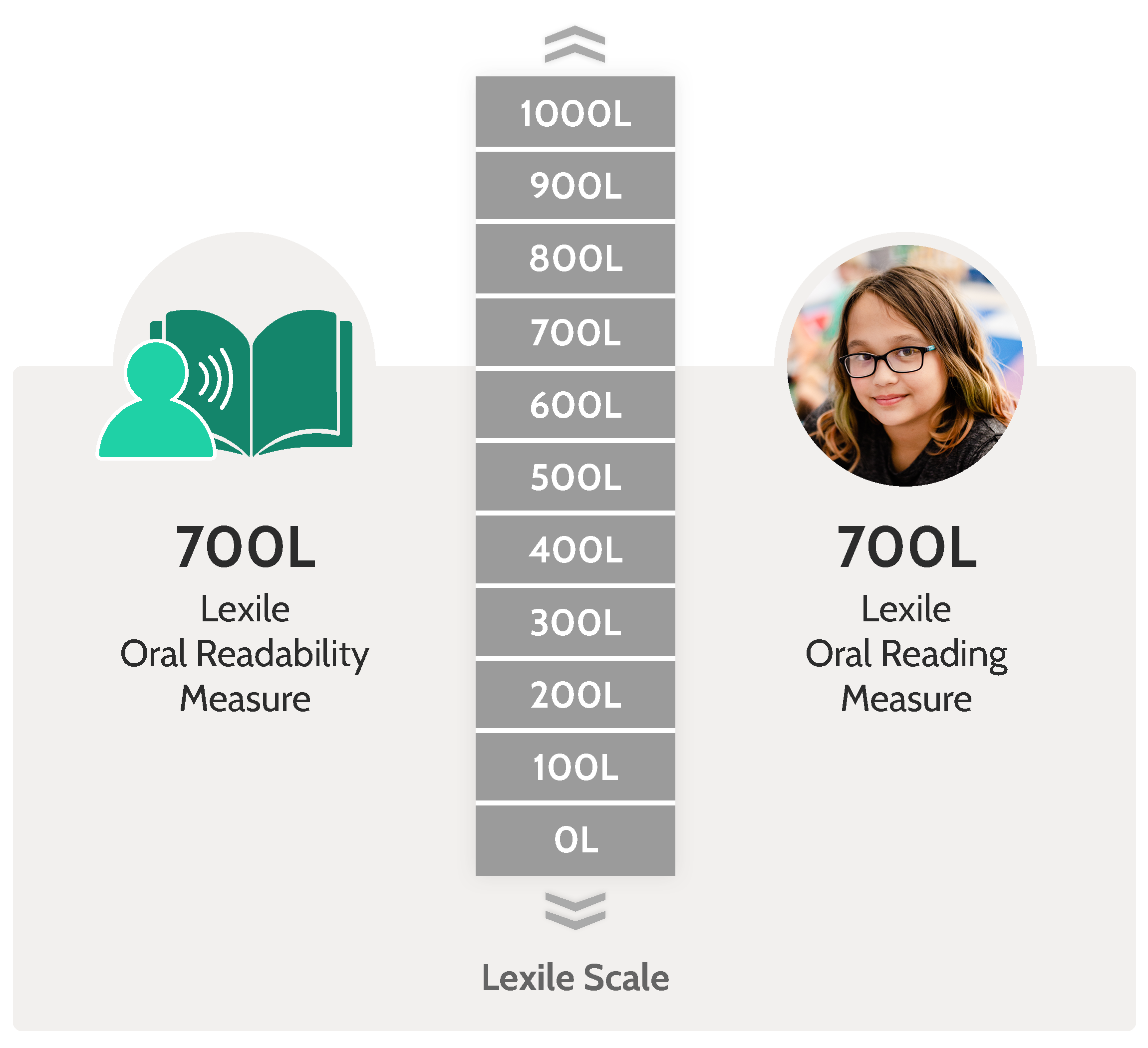About Lexile® Measures for Oral Reading
Accurate measurement of students’ oral reading ability is important as oral reading is a strong predictor of reading comprehension, an essential academic and life skill. The Lexile® Framework for Oral Reading is a scientific approach to measuring both students’ oral reading ability and the oral readability of text on the same Lexile scale. This results in two types of Lexile measures: the Lexile oral reading measure for students and the Lexile oral readability measure for text passages.

Student Measures
Students get a Lexile oral reading measure by reading a text aloud as a recorded electronic audio file. Texts can be selected from the Lexile® Item Bank or can be almost any unpracticed oral reading passage that a teacher selects. Students read a text passage for about a minute or even less for younger students. Education partners control the student experience and capture sound files in whatever manner they prefer. Audio files and the text are sent via API to MetaMetrics®. Audio files are analyzed using state-of-the-art speech recognition and artificial intelligence technologies.
The MetaMetrics fully automated system immediately reports back feedback including:
- The student’s oral reading Lexile measure such as 700L
- Words Correct Per Minute such as 95 WCPM
- Reading speed such as 100 words per minute
- Reading accuracy percentage such as 95%
- Diagnostics on word pronunciation and intonation such as words to practice (to come)
There is no set age or grade level for students taking an oral reading test. Usually those most benefiting are in the 1-4 grade range or are a struggling reader or English Learner at any grade level. Oral reading assessments can help monitor and track progress for any student who is still developing automaticity in their reading.
Oral Readability Measures
Just as the Lexile® Text Analyzer examines text complexity features impacting ease or difficulty in understanding, the Lexile® Oral Readability Analyzer examines features impacting oral readability such as:
- Number of syllables in the words
- Unconventional spelling
- Words with consonant clusters making them difficult to pronounce such as pterodactyl and enthusiastic
Want to Learn More?
Download our flyer on the Lexile Framework for Oral Reading.
